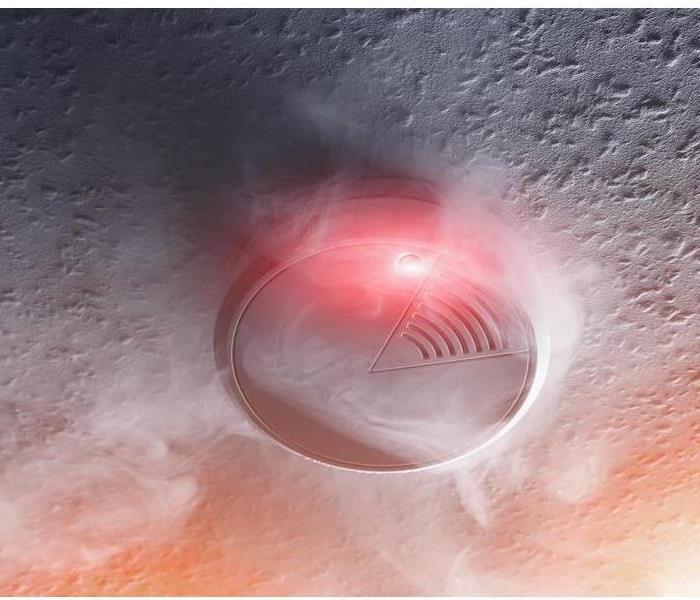Fire Safety 101: How Many Fire Alarms Should You Have in Your Home?
4/12/2023 (Permalink)
A fire alarm is an essential piece of equipment for any home or business. It will alert you to the presence of smoke or flames, giving you time to escape safely before they cause damage and injuries.
A fire alarm should be installed in every room where there's a potential for fire damage, such as kitchens and laundry rooms. If you have children in your home who are still young enough to crawl (or even walk), then it's also important to install alarms on every floor so that they can't get into trouble while their parents aren't looking.
Types of Fire Alarms
There are a few different types of fire alarms that you can choose from.
Smoke detectors: These are the most common type of alarm, and they're designed to detect smoke in your home. They can be battery-operated or hardwired into your electrical system. If you have an older home, it's important to make sure that all of your smoke detectors are working properly and have fresh batteries in them at all times--even if they're not going off! If a detector goes off when there isn't actually any danger present (like when someone burns toast), it could make people think there's a real emergency when there isn't one at all--and then everyone will panic unnecessarily!
Heat detectors: These devices sense high temperatures inside your house instead of detecting smoke itself like regular smoke detectors do; this means that they'll go off even if there isn't any visible sign of fire yet (like heavy black clouds billowing out from under closed doors).
Requirements for Fire Alarms in the Home
Fire alarms are required by building codes, local laws and insurance requirements. These requirements vary from state to state and city to city.
In addition to these basic requirements there are other considerations that may affect how many fire alarms you need in your home:
How Many Fire Alarms Do I Need?
The number of fire alarms you need depends on the size of your home. The National Fire Protection Association recommends one fire alarm per floor and one in each bedroom, but there are other factors to consider as well.
If you live in an apartment building or condo, the regulations are different than if you own a single-family house or townhouse. In an apartment building, there may be multiple buildings on one property with each having its own set of regulations regarding fire safety equipment (like smoke detectors). It's important to check with your landlord before buying any additional devices yourself because they could void any warranty coverage provided by them if they're not installed properly or meet code requirements based on local laws governing residential dwellings like yours
Placement of Fire Alarms
The placement of your fire alarms is also important. You should make sure to place them at least 10 feet away from any cooking appliance and at least 12 inches from any wall or corner. The best locations are those that are free of obstructions, like windows and doors.
Testing Fire Alarms
The best way to ensure that your fire alarms are functioning properly is to test them monthly. Test all smoke alarms and carbon monoxide detectors, including those that are hardwired into the building's electrical system.
If you have a battery-operated smoke detector, replace its batteries twice a year (or more often if you live in a hot climate). Replace all smoke detectors every 10 years, however, if you have hardwired units with sealed batteries that cannot be accessed without replacing the entire unit or disconnecting power from it, then they should be replaced after 15 years of service life.

 24/7 Emergency Service
24/7 Emergency Service
